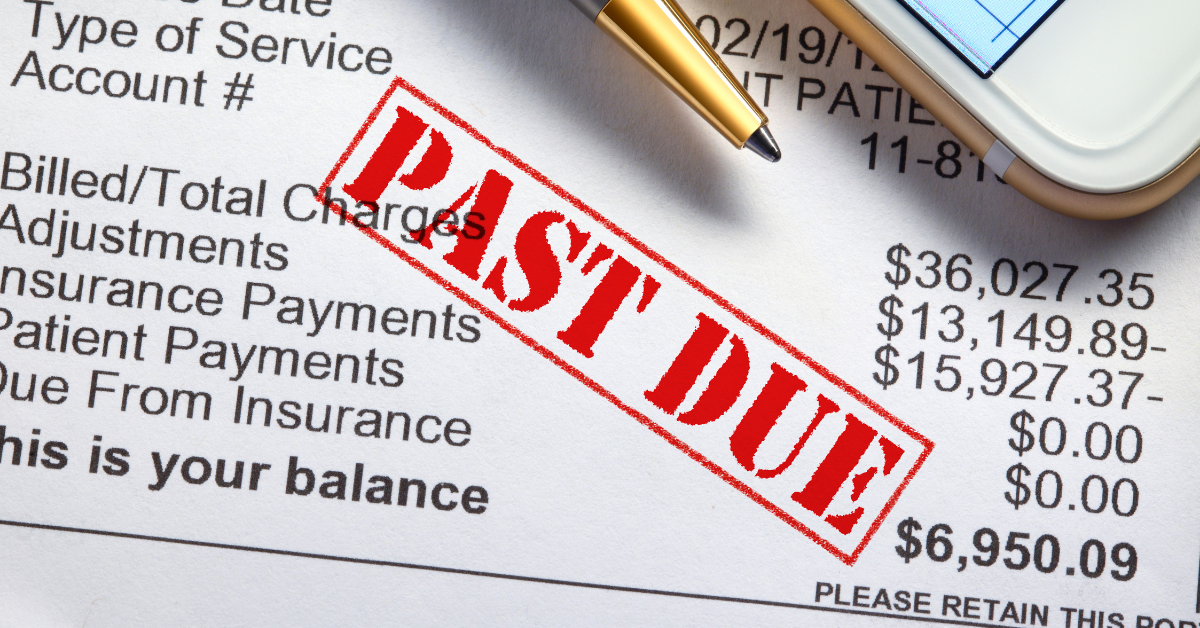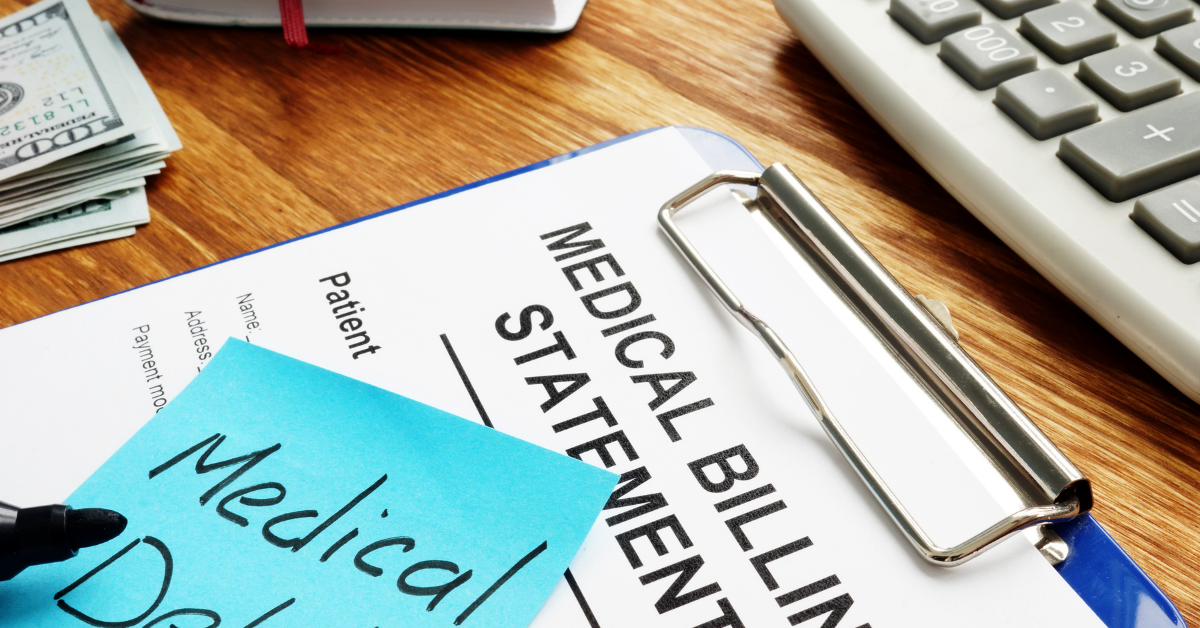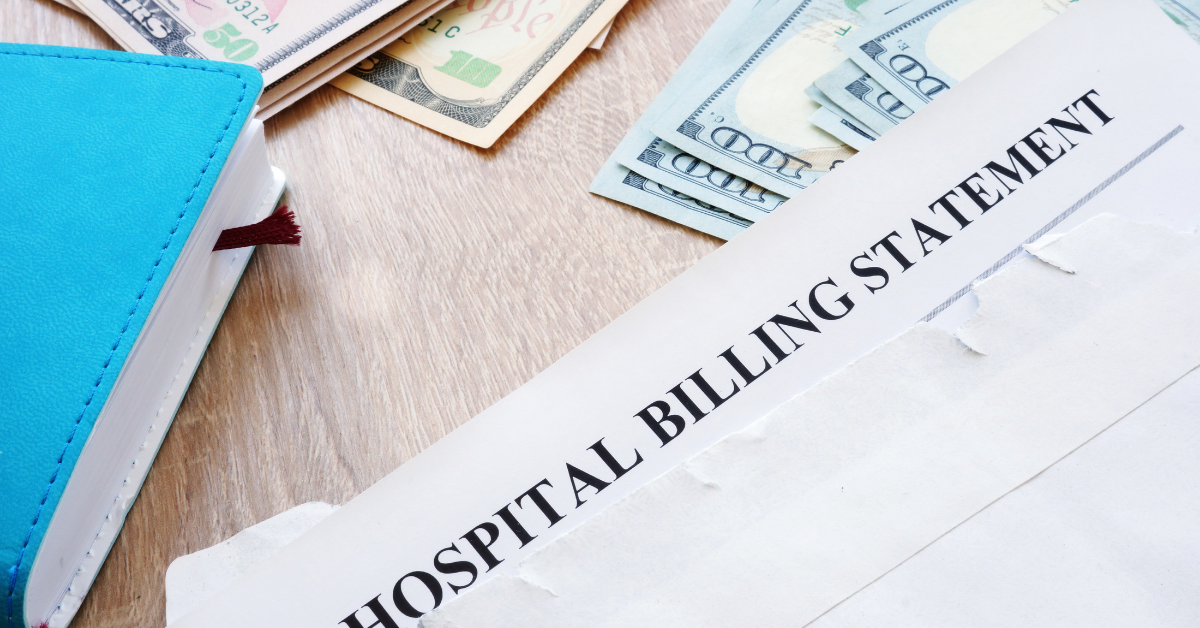Medical debt is unfortunately a common financial burden for many Americans. According to a recent study, roughly 20% of adults in the United States have some form of medical debt.
With rising healthcare costs and inconsistent health insurance coverage, you may find yourself stuck with unexpected medical bills that you can’t afford to pay.
This naturally leads many people to wonder: does medical debt affect my credit score?
The short answer is yes – unpaid medical bills that get sent to collections can definitely impact your credit score. However, there are some important nuances to understand about how medical debt is handled by credit bureaus and scored by credit models.
In this article, we’ll break down everything you need to know about how medical debt affects credit reports and scores.
How Medical Debt Impacts Your Credit Report

Let’s start by looking at how medical debt shows up on your credit report, as this is the foundation for your credit scores.
There are three major consumer credit bureaus that compile credit reports: Equifax, Experian, and TransUnion. Each bureau maintains a record of your credit history known as a credit file.
When you fail to pay a medical bill and it gets sent to collections, it will likely show up as a “collection account” on your credit report at one or more bureaus. Medical collections may also show up as “medical payment data” on newer credit reports.
These medical collection accounts and medical payment data entries can stay on your credit report for up to seven years from the date the debt first became delinquent and was not paid.
Having medical collections on your report can damage your credit standing in a few key ways:
- It shows that you failed to repay a debt obligation. This raises questions about your reliability and trustworthiness as a borrower.
- It negatively impacts your credit utilization ratio. This measures how much of your total available credit you are using.
- It lowers your credit history length by adding a new, adverse entry. Length of credit history is a key factor in credit scoring.
- It blemishes what otherwise may be a clean credit history. A spotless report is ideal for your scores.
So in summary – yes, unpaid medical bills that get turned over to collections can hurt your credit report for years to come. That’s why it’s so important to stay on top of medical bills and avoid collections whenever possible.
How Medical Collections Affect Credit Scores

Now that we understand how medical debt impacts your credit report, how does this translate into actual damage to your credit scores?
The major credit scoring models, including FICO and VantageScore, use the data in your credit report to calculate your scores. Higher scores equate to better creditworthiness.
Some key scoring factors influenced by medical collections include:
Payment History:
Scores favor a long history of on-time payments. Medical collections are missed payments that get counted against you.
Amounts Owed:
Carrying debt close to your credit limits hurts your credit utilization ratio. Medical collections add to unpaid balances.
Credit History Length:
Scores improve with a longer, well-established credit history. Medical collections shorten your history.
Credit Mix:
Scores like to see responsible use of different credit types over time. Medical collections add only negative entries.
New Credit:
Applying for or taking on new credit can lower scores temporarily. Medical collections are new adverse entries.
Generally, FICO scores penalize collections less than late mortgage/credit card payments, while VantageScores weigh all late payments about equally.
For medical collections specifically though, both models reduce the scoring impact compared to other types of collections. Unpaid medical bills also do not get counted toward your credit utilization ratio.
This means medical collections hurt your scores less than other defaults. However, they still have a negative effect and can contribute to score drops of a few points to over 100 points depending on your profile.
It’s also worth noting that paid medical collections remain on your credit reports just like unpaid ones. So paying off medical bills in collections unfortunately does not completely undo the damage to your scores.
Strategies for Minimizing the Credit Impact

Now that you know medical collections do negatively affect your credit reports and scores, here are some tips for minimizing the fallout:
- Always review medical bills for errors and clarity. Billing advocates can help with disputing errors.
- Contact your providers and negotiate payment plans, discounts, or financial assistance. Many will work with you.
- If paying in full is impossible, consider a credit counseling agency or debt management plan.
- Keep credit card balances low and accounts open while paying down medical debt.
- Contact collection agencies directly to negotiate payoffs or deletion, or dispute erroneous medical debts.
- Frozen credit reports prevent new accounts but also lock in negative info. Thaw reports once debts are paid.
- If your credit is already poor, pay or settle medical collections so they drop off reports sooner.
- After 7 years, unpaid medical debts and collections will disappear from your credit reports.
- Always pay medical bills on time going forward to establish a positive payment history.
Dealing with medical debt can be challenging. But understanding its impact on your credit and taking strategic steps can help minimize the long-term effects on your overall financial health.
When Might Bankruptcy Help With Medical Debt?

For those facing truly overwhelming medical debt that cannot be paid off through normal means, declaring bankruptcy may be an option worth exploring.
Filing for Chapter 7 or Chapter 13 bankruptcy can eliminate or discharge qualifying medical debts entirely so they no longer burden you. However, bankruptcy stays on your credit report for 7-10 years and should be considered carefully.
An experienced bankruptcy attorney can advise whether your specific circumstances merit pursuing bankruptcy to deal with medical bills or collections. They can also help ensure medical debts get properly treated as dischargeable.
In some cases, bankruptcy can provide a relatively quick restart for people whose credit and finances have already been decimated by medical collections. The bankruptcy filing will damage your credit further, but can also give you a clean slate going forward.
Key Takeaways
- Unpaid medical bills that get sent to collections will show up on your credit reports and can lower your credit scores.
- Both FICO and VantageScore models count medical collections but weigh them less heavily than other defaulted debts.
- Strategic steps like negotiating payment plans and keeping credit card usage low can help minimize damage to your credit.
- Bankruptcy is an option if your medical debts are completely unmanageable, but should be approached carefully.
- Always review medical bills thoroughly and pay them on time whenever possible to avoid collections.
If you have questions about how to deal with medical debt or optimize your credit, reach out to an expert credit counselor or attorney for advice specific to your situation. With the right help, you can take control of your financial health.
Frequently Asked Questions
Can unpaid medical bills affect your credit?
Yes, any medical bills you fail to pay that get sent to collections can end up as negative entries on your credit report at one or more of the three major credit bureaus. These medical collections can stay on your report for up to seven years and lower your credit scores.
Are medical bills factored into credit score?
Although medical debt is treated differently than other debts in credit scoring models, unpaid medical bills that appear as collections accounts on your credit report do negatively impact your FICO and VantageScore credit scores. They demonstrate missed payments and add adverse entries to your credit history.
Is medical debt going to be removed from credit report?
Starting July 2022, the three major credit bureaus will no longer include paid medical collection debts under $500 on credit reports. These paid collections will be removed. Unpaid medical debts will still appear for up to seven years.
For older medical collections, disputing errors with the bureaus or negotiating deletion with collectors may get them removed earlier. Otherwise, they will automatically fall off your report after seven years from the date of first delinquency.
How long does it take for medical bills to fall of credit?
Unpaid medical bills that get turned over to collections will typically remain on your credit report for seven years from the date the medical provider first reported the account delinquent. After seven years, they must be removed even if still unpaid.
Paid medical collections will fall off credit reports sooner – likely within 1-2 years, based on credit bureau policies. Of course, preventing medical debt from going to collections at all is ideal to avoid credit damage.
Is it true that after 7 years your credit is clear?
In most cases, yes – negative information like collections accounts must be deleted from your credit report after seven years, provided the debts are accurate and properly reported. This includes medical collections. Bankruptcies can remain for up to ten years.
However, the seven-year clock resets if the same medical debt gets resold to a new collection agency and re-reported. In that case, the collector must validate that the debt is accurate. Overall though, your credit report should be clear of old medical debts after seven years.
What happens after 7 years of not paying debt?
If a medical debt goes unpaid for seven years and no payment is made, the statute of limitations expires in most states and creditors can no longer sue to collect on the debt. The debt also must be removed from your credit report after seven years.
However, the creditor or collector can still attempt to collect through letters, calls, etc. And if you make a payment or acknowledge the debt after seven years, it may reset the statute of limitations period. An attorney can advise you on your state’s statutes.
Take Control of Your Medical Bills and Credit

Unpaid medical debt and bills in collections can undoubtedly damage your credit. But working proactively to negotiate with providers, utilize payment plans, dispute errors with bureaus, and keep credit balances low can all help minimize the impact.
If your medical debts are completely unmanageable, an attorney can advise if bankruptcy may be a viable option for a fresh start. Either way, always strive to pay current and future medical bills on time and in full whenever possible.
Contact Us for Medical Debt Help
At LSS Law, our caring professionals have extensive experience helping clients understand the credit implications of medical debt. We’re here to answer your questions and help you take control of your financial health.
To learn more or schedule a free, no-obligation consultation with our legal team, contact us today.






